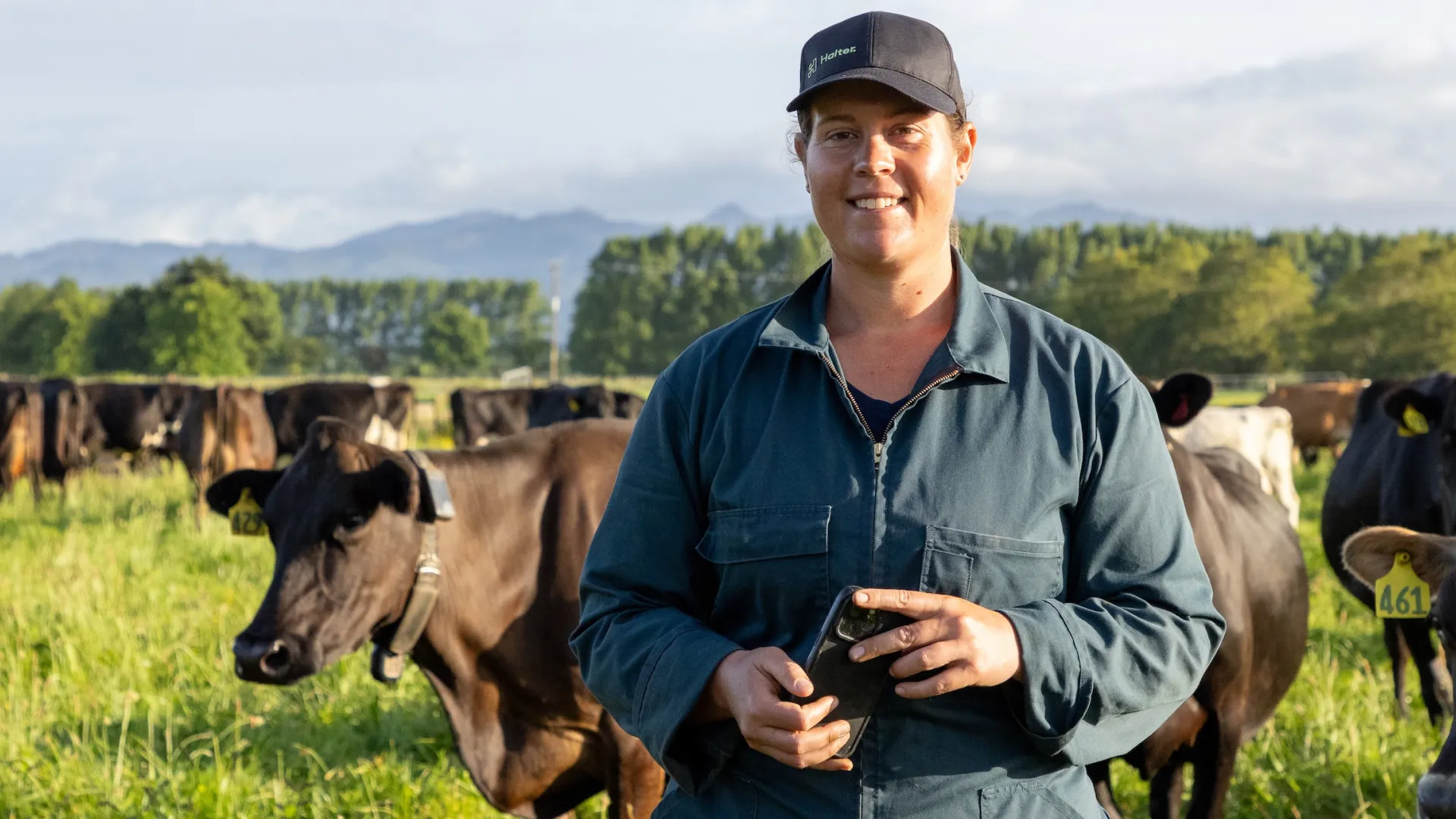Strong submission rates across Halter farmers bode well for Spring mating

MEDIA RELEASE
November 20 2024
Indicative metrics early in the Spring mating season are looking positive for hundreds of Halter dairy farms.
The average 3-week submission rate for Halter farms was 87%, around 5% higher than the national average reported by LIC (81.9%).^
About 80% of Halter farmers achieved a submission rate higher than the national average, and the top 10% of Halter farms were higher still, achieving submission rates above 95%.
A submission rate is a critical metric to measure the success of a farm’s mating season. Paired with a good conception rate, a high submission rate will result in a high 6-week in-calf rate and low not-in-calf rate, which translates into a more compact calving spread, more days in milk the following season, and less empty cows to be culled.
Halter’s 2023 data shows that every 1% increase in 3-week submission rate correlates to a 1% increase in 6-week in-calf rate. With the average submission rate for Halter farms 5% above the industry average, this could translate to $10,000 of extra profit for a 500 cow farm*.
“These strong submission rates are an exciting checkpoint for this stage of the mating season,” says Halter CEO Craig Piggott. “They bode well for high 6-week-in-calf-rates, which will represent a great revenue boost for our customers.”
Year-round reproduction insights
Halter’s year-round heat monitoring allows farmers to track their herd’s cycling performance from the start of calving, which unlocks a strong focus on pre-mating fertility, using targeted mob and feed management to boost cycling rates.
The average proportion of Halter cows cycling at Planned Start of Mating was 74%, while the top 10% had 90% or more, reflecting strong fertility across Halter herds by the time they started mating.
^ LIC data based on 2.6 million cows
* DairyNZ Economics of Reproductive Performance tool
Media Contact:
Ashleigh Gilchrist
021 236 8324
ashleigh.gilchrist@halter.co.nz




